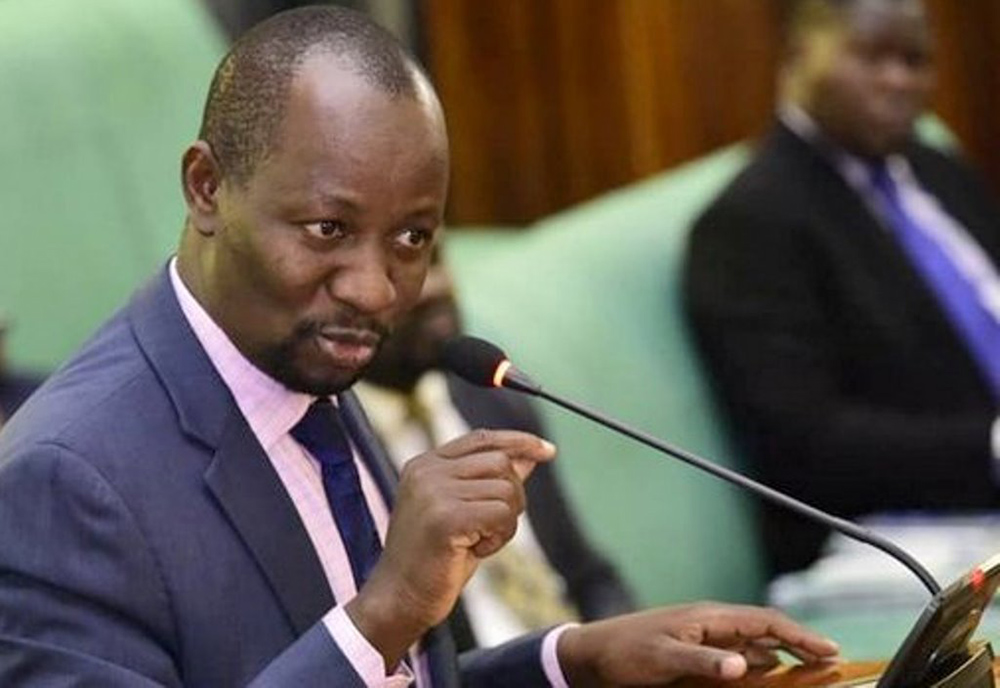Uganda parliament approves sh352b loan for livestock sector
The loan was endorsed on Tuesday, September 9, 2025, despite initial resistance from opposition MPs who argued that government had not conducted adequate consultations and due diligence.
Speaker of Parliament Anita Among, who chaired the sitting, explained that the request had been brought when Parliament was in recess, and time was running out to meet the September 12, 2025, deadline for signing the agreement with IFAD.
KAMPALA - Uganda parliament has approved government’s request to borrow up to $99.56 million (sh352billion) from the International Fund for Agricultural Development (IFAD) to finance the Resilient Livestock Value Chain Project (RELIV).
The loan was endorsed on Tuesday, September 9, 2025, despite initial resistance from opposition MPs who argued that government had not conducted adequate consultations and due diligence.
Speaker of Parliament Anita Among, who chaired the sitting, explained that the request had been brought when Parliament was in recess, and time was running out to meet the September 12, 2025, deadline for signing the agreement with IFAD.
Some MPs raised concerns about the loan’s structure. Muwanga Kivumbi Mohammed (Butambala County, NUP) criticised the inclusion of $8million (sh28 billion) in management fees, calling it wasteful and unnecessary.
Speaker of Parliament Anita Among.
Ibrahim Ssemujju (Kira Municipality, FDC) faulted the Committee on National Economy for recommending approval of the loan despite previously highlighting weaknesses in its terms and urging renegotiation.
However, John Bosco Ikojo, the chairperson of the committee on national economy, defended the loan. Ikojo urged Government to ensure that the bulk of the funds are directed to project activities rather than administrative costs.
He asked the agriculture ministry to provide regular reports on the loan’s implementation.
Several other legislators supported the loan, noting that international funding is becoming scarce and Uganda should seize the opportunity to secure concessional financing.
The state minister for finance Henry Musasizi, who tabled the motion for a resolution of Parliament, assured legislators that the terms of the loan were favourable to Uganda.

MP Ibrahim Ssemujju Nganda
Supporting farmers in the cattle corridor
The RELIV project will target 51 districts within Uganda’s cattle corridor.
Its goal is to improve the incomes, nutrition, and resilience of smallholder livestock farmers, while reducing poverty and vulnerability to climate shocks.
Uganda currently has an estimated 14.5 million head of cattle, producing about 5 billion litres of milk and 225,045 metric tonnes of beef in 2023, according to the Uganda Bureau of Statistics (UBOS).
Livestock is a major contributor to the economy, accounting for 21% of agricultural value added and 4.3% of national GDP. Dairy exports dominate, bringing in $264.5 million in 2023, while beef exports remain modest at $6.2 million.
Experts point to significant potential for growth in regional milk exports and beef sales to Middle Eastern markets.
Project benefits
According to Musasizi, the RELIV project will support breeding, multiplication, and certification of improved livestock, strengthen animal disease control, promote mechanisation and irrigation, and expand farmer training and mobilisation.
It will fund research and partnerships with large landowners to improve livestock productivity.
The minister recalled that President Yoweri Museveni, in May 2022, directed the Ministry of Finance to mobilise resources for livestock development.
The Cabinet has since approved the Agricultural Value Chain Development Strategy, which outlines interventions to unlock bottlenecks across the sector.

The state minister for finance Henry Musasizi.
Agriculture’s central role
Agriculture remains the backbone of Uganda’s economy, employing about 70% of the population and contributing 24.7% to GDP in FY2023/24 — up from Shs35.36 trillion in FY2020/21 to Shs50.01 trillion. Despite this, per capita consumption of beef (6 kg) and milk (36 litres) remains below regional averages.
With Uganda’s population growing rapidly, the Food and Agriculture Organisation projects demand for beef and milk will increase by 320% and 200% respectively by 2050.
Challenges in the livestock sector
The sector faces multiple challenges, including recurrent outbreaks of foot-and-mouth disease, contagious bovine pleuropneumonia, lumpy skin disease, and overuse of antibiotics, raising concerns about antimicrobial resistance.
Overgrazing, land degradation, climate change, and prolonged droughts have also led to water and fodder shortages. Weak cold-chain systems and a reliance on informal milk markets undermine quality and food safety, while underdeveloped farmer organisations limit access to finance, markets, and essential services.
Musasizi said IFAD’s financing will help address these bottlenecks by building on the agency’s experience in supporting smallholder farmers and cooperatives across Africa.
“This project will enhance livestock production, improve resilience, and strengthen market access to drive agricultural commercialisation and socio-economic transformation,” he told Parliament.